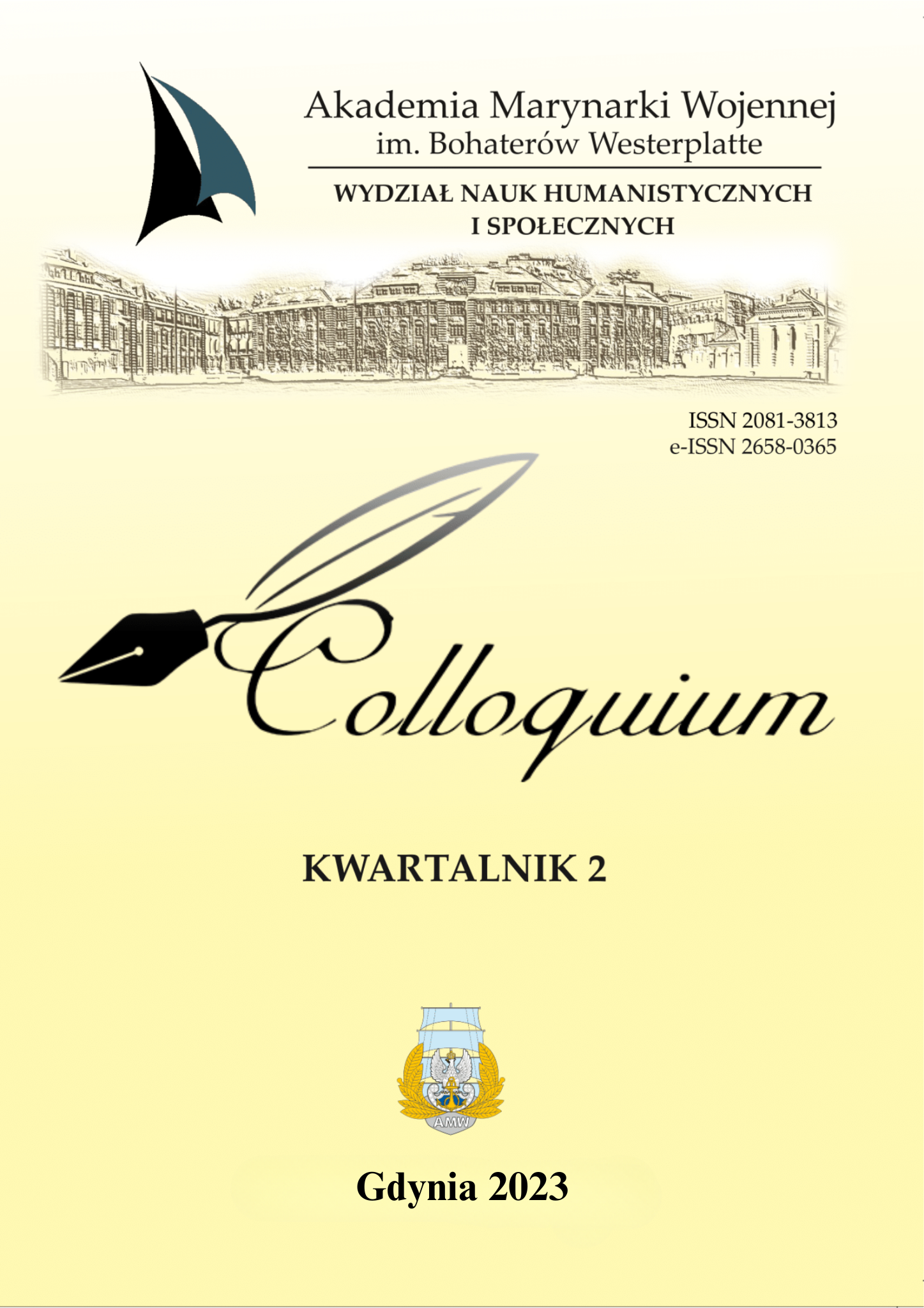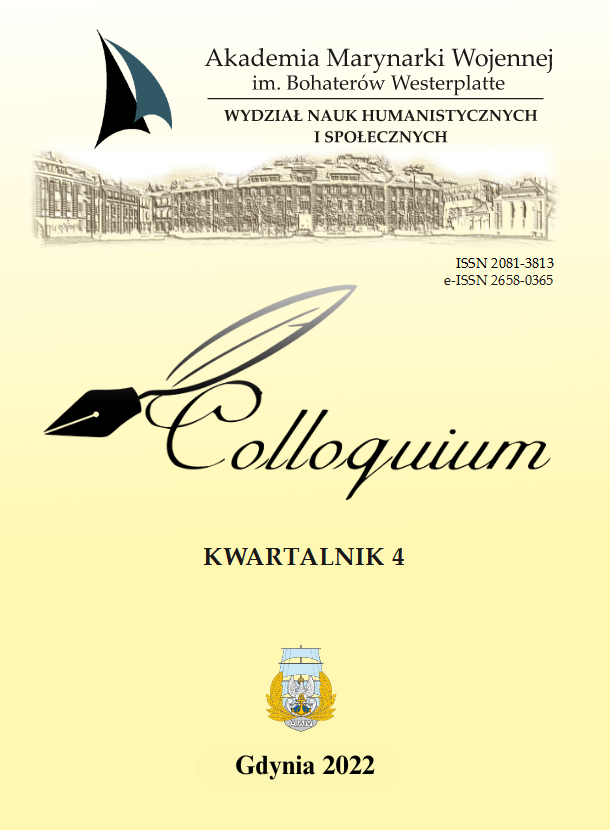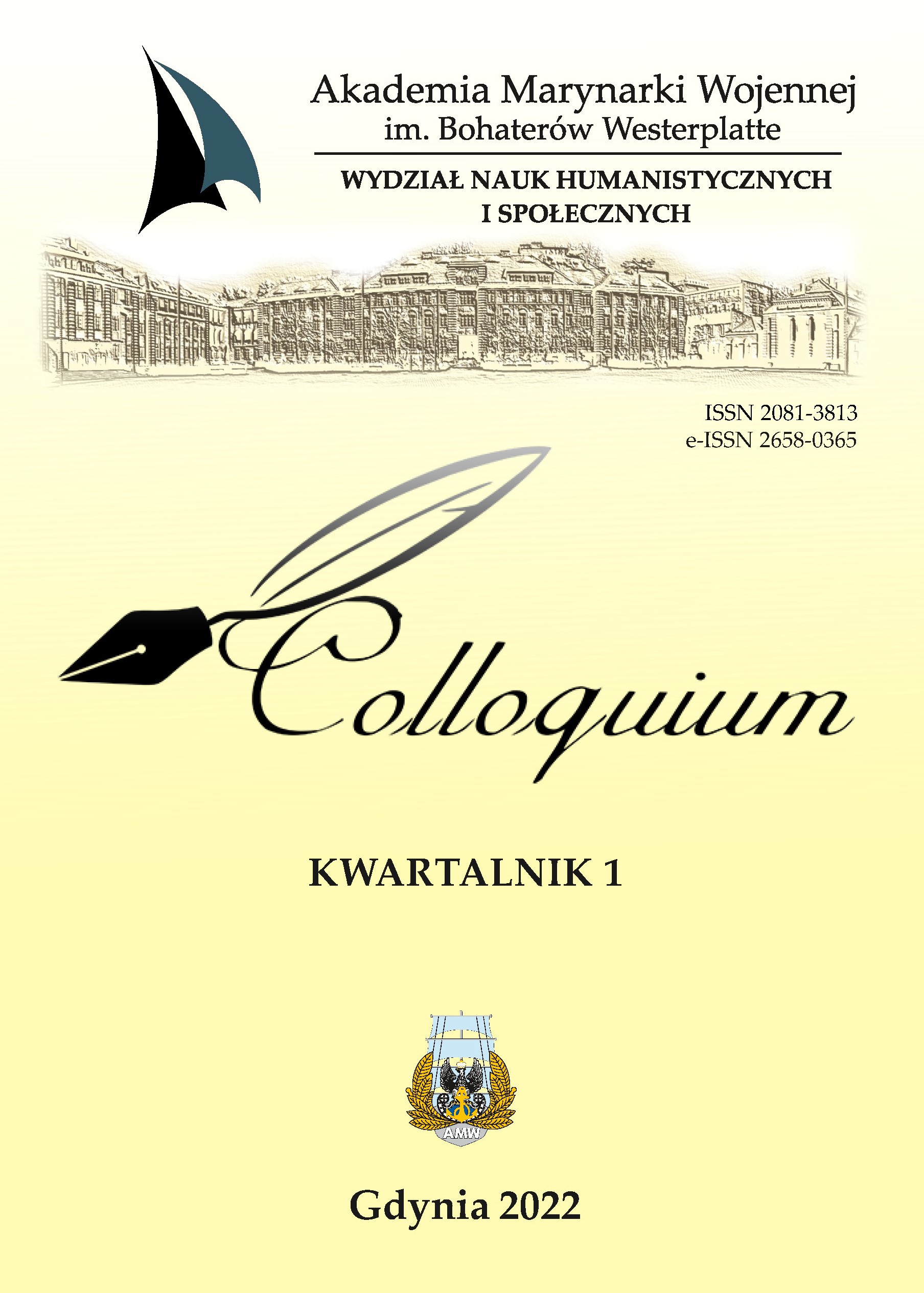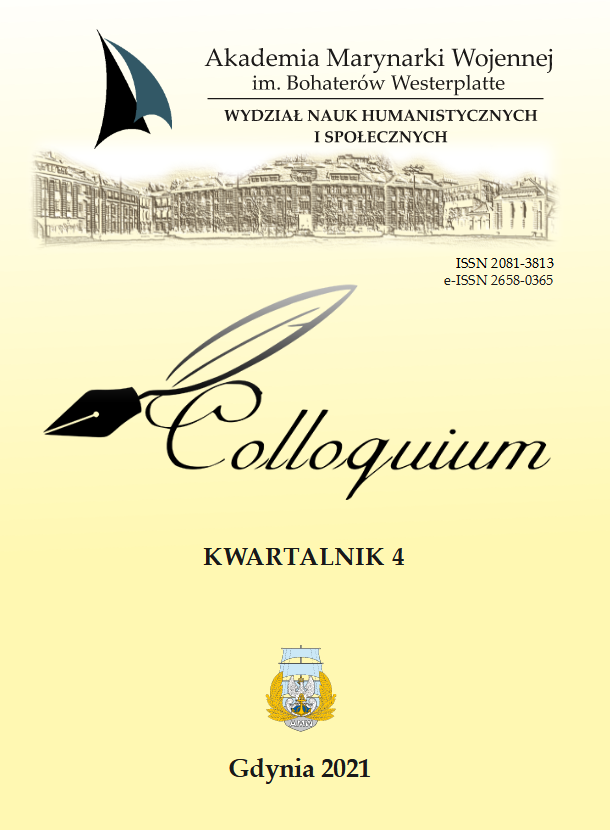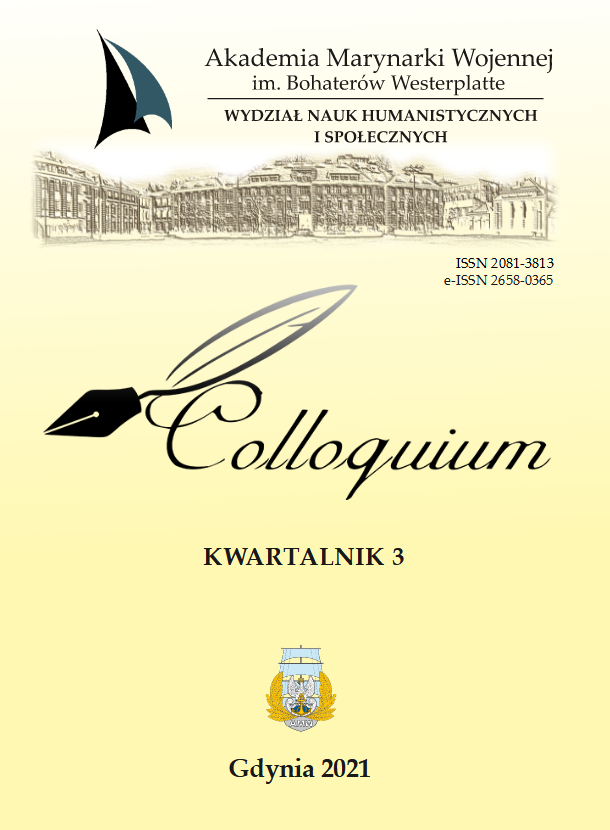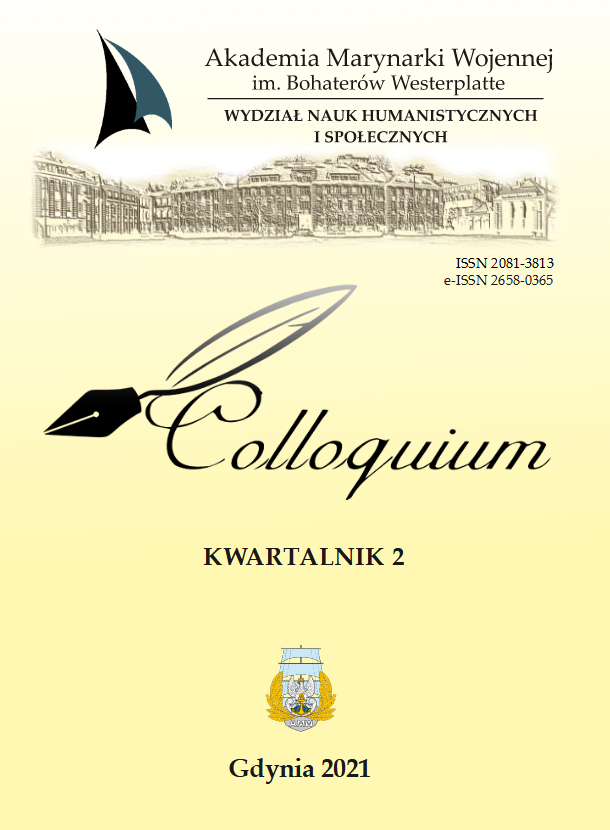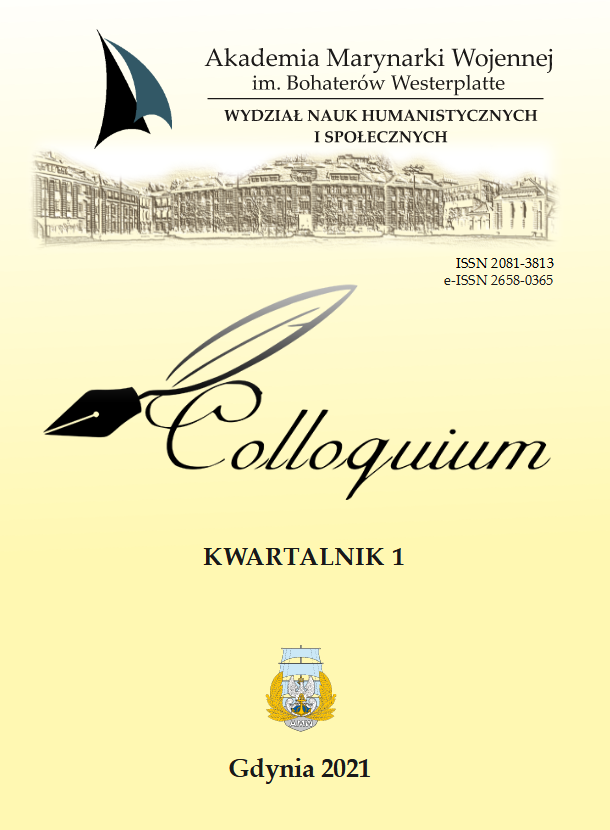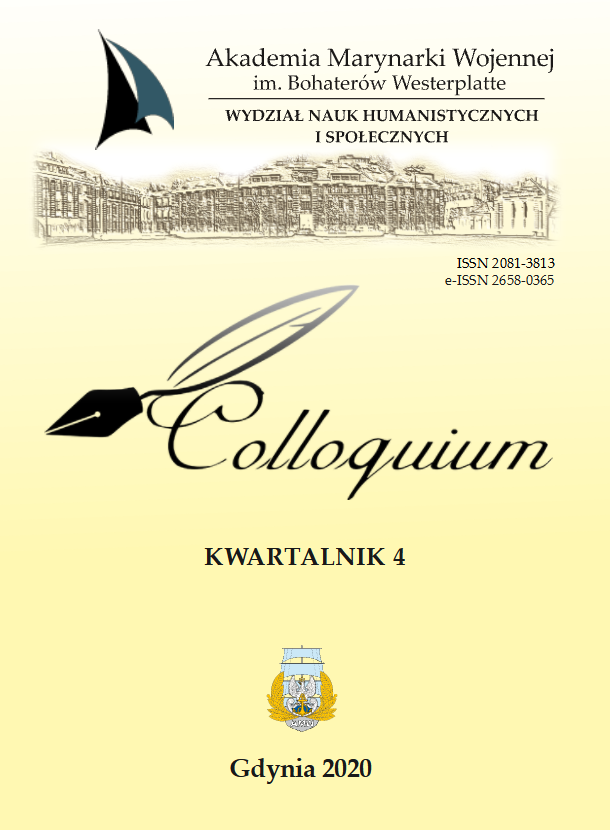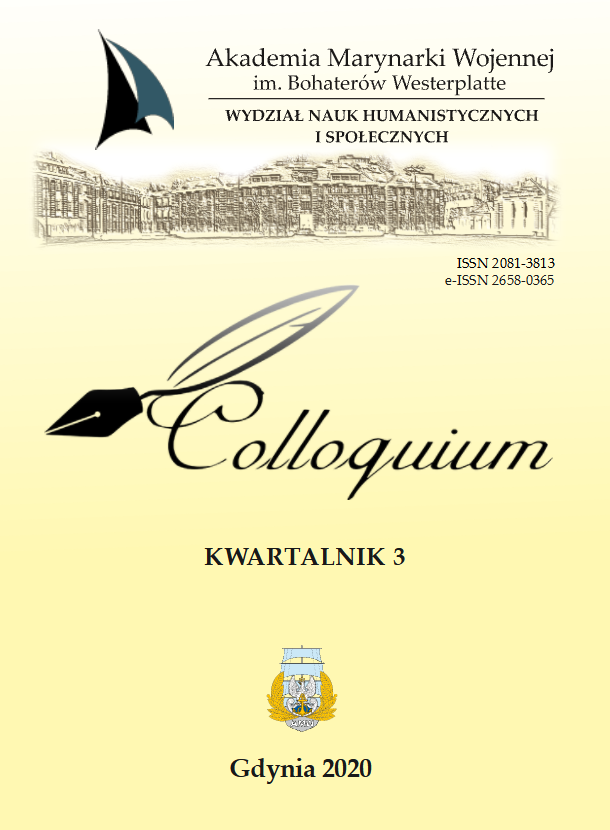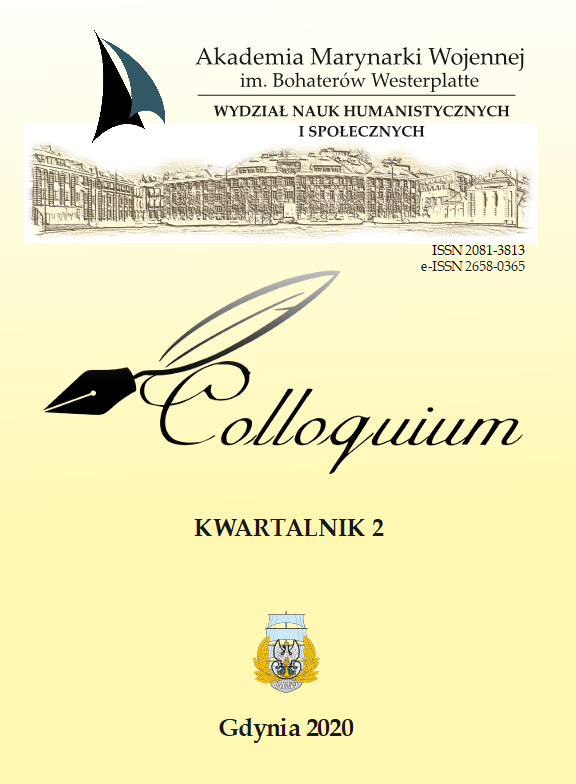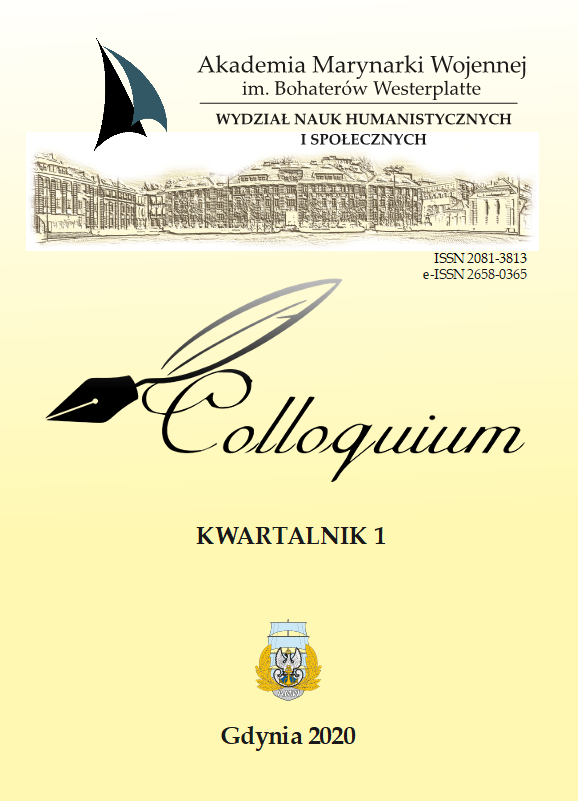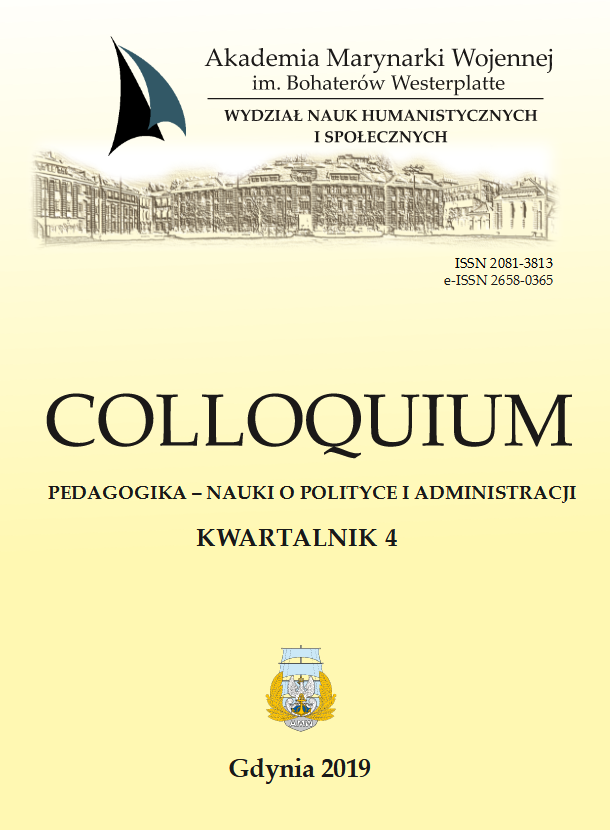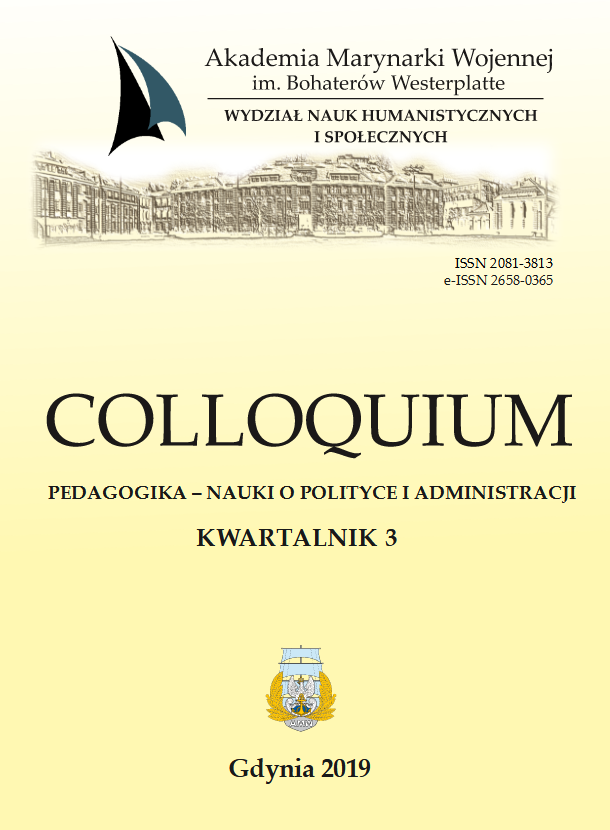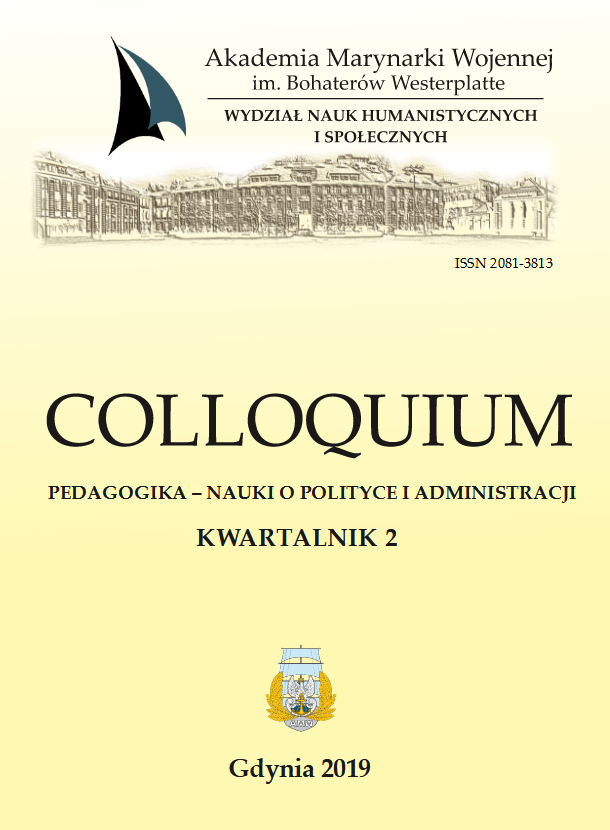Archives
-
Colloquium
Vol. 17 No. 2 (2025)- E. Sapia-Drewniak – The legal and organizational foundations of the education of adults in the Interwar period (1918–1939)
- Z. Szarota, R. Cierzniewska – Adult educator – the problems of professionalization
- E. Buczko, J. Kowalczyk – Zarys psychologii wojskowej – historia, współczesne wyzwania i implikacje edukacyjne
- E. Podgórska – The sense of injustice in objective hermeneutics. The objective and subjective components
- A. Tychmanowicz, A. Goździewicz-Rostankowska – Aksjologiczne konteksty pacyfizmu i niestosowania przemocy (non violence) w społeczeństwie obywatelskim
- A. Skuzińska, M. Plopa – Klimat organizacyjny szkoły a postrzeganie wsparcia społecznego. Perspektywa uczniów i nauczycieli
- B. Walczak, J. Kołodziejczyk, A. Walczak, S. Tricas-Sauras – Sport activity and alcohol use among adolescents. Challenges to the education and prevention management
- A. Kurowska-Susdorf, K. Kwidziński – The Conceptualization of Well-Being in the Context of Green Lessons Project In Outdoor Education
- W. Wójcik, M. Sokołowski – Zdalnie po zdalnym? Perspektywa porównawcza pracy nauczycieli przed i po pandemii COVID-19
- B. Thoilliez – A Principled Plea for Analogue Study Practices in the Digital University
- D. Zaworska-Nikoniuk – Przyczyny, kategorie i skutki patostreamingu – analiza jakościowa wybranych treści źródeł medialnych
- A. Paprotny, M. Kopczewski – Szkoła jako środowisko zapewniania cyberbezpieczeństwa dzieci i młodzieży – zagrożenie patostreamingiem
- J. Siemionow – Formy i jakość kontaktów z rodziną w ocenie mężczyzn odbywających karę pozbawienia wolności
- T. Szubrycht – Analiza realizacji zapisów rosyjskich dokumentów strategicznych w odniesieniu do akwenów morskich
- T. Rudowski (recenzja) – Zwycięstwa nieuznane? Artykuł recenzyjny monografii Piotra Sieniawskiego pt. “De Facto States in the Post-Soviet Space: the Cases of Abkhazia and South Ossetia”
-
Colloquium
Vol. 17 No. 1 (2025) -
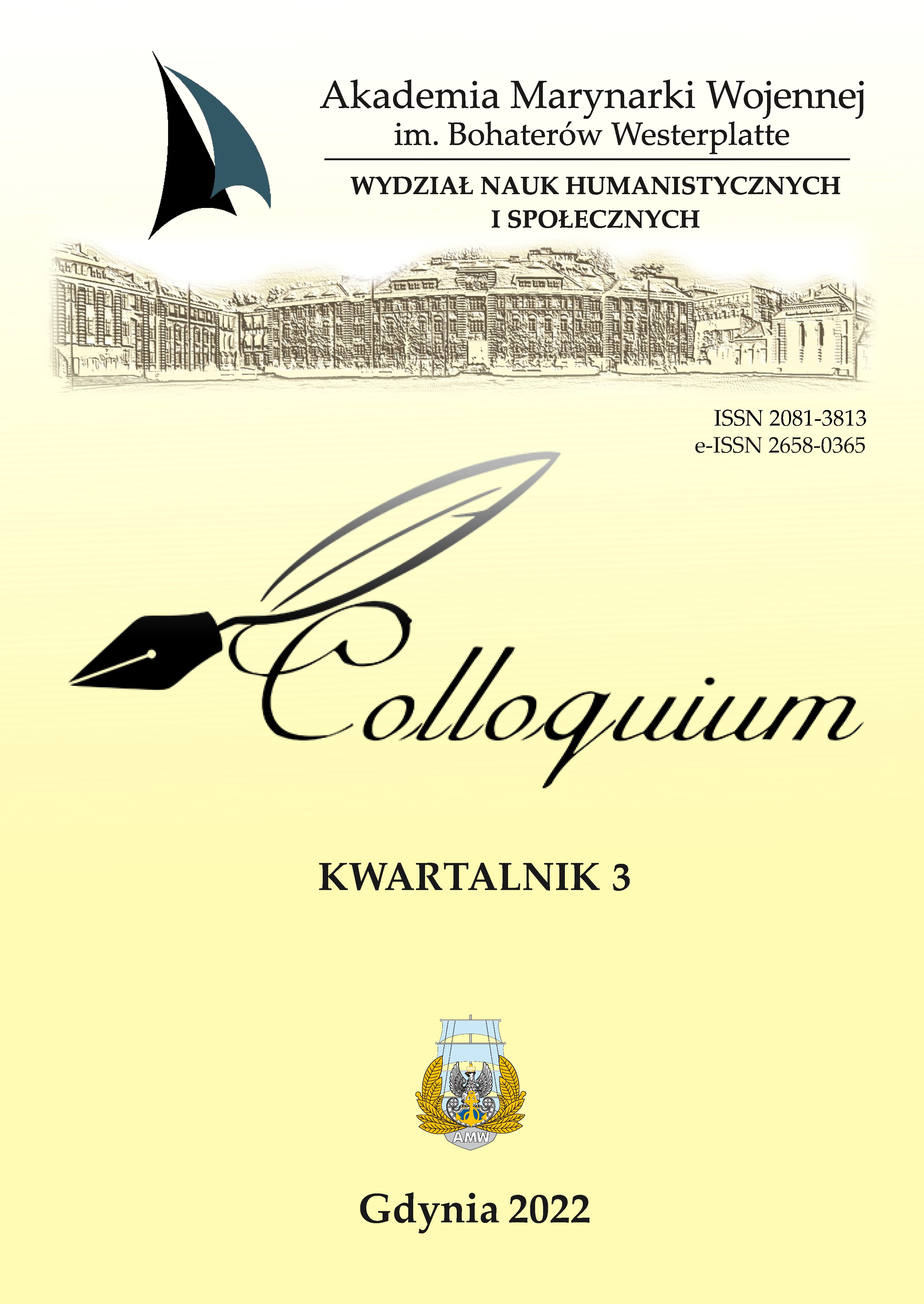
Colloquium
Vol. 14 No. 3 (2022)INTRODUCTORY WORD
We have just celebrated the 100th anniversary of the Naval Officer School in Toruń. Although a different city, it is the predecessor of the Naval Officer Cadet School in Bydgoszcz, the Naval Officer School in Gdynia, later Higher Navy School and Polish Naval Academy of the Heroes of Westerplatte in Gdynia.
Our 100-year history is primarily made up of people, including Adam Mohuczy, Stefan Frankowski, Karol Korytowski, Tadeusz Morgenstern-Podjazd, Stanislaw Mieszkowski, Robert Satanowski, Stanisław Leszczyński, Henryk Pietraszkiewicz, Witold Gliński, Jerzy Apanowicz - just to name some of the already deceased commanders.
For me, the adventure with my Alma Mater began three times. The first time was in 1979, when I crossed its walls and became a cadet. To this day I don't know how I managed to graduate from it, although I didn't have any major problems with my studies. But with discipline - yes. Probably a lot of credit for this goes to Marian Cuban - the head of the course, and above all to Edward Szmul - the course commander. I came for the second time, already to the Naval Academy, in 1990 as a naval captain and a doctor of philosophy, then I learned that the academy was undergoing restructuring. I was not offered a further career at the Institute of Social Sciences. However, fate willed otherwise - I had the honor of working with two rectors: Antoni Komorowski and Zygmunt Kitowski. For the third time, already as a professor, in 2007 I was hired by the new Rector Czesław Dyrcz, and a little later elected Dean of the Faculty of Humanities and Social Sciences. I was also trusted by Rector Tomasz Szubrycht. Thus 32 years of service and work, and if you count the years of being a cadet, a total of 37 years.
During this time I met and worked with many distinguished people. Most of them are real heroes of our history. Their professionalism, kindness, but above all their courage created and continues to create the identity of our university. It is to them that we pay tribute - these ordinary people, without whom our history would not exist. It is to them that some of the articles included in this issue of Colloquium are dedicated. As an aside, the very idea for the journal was born in the circle of academic humanists. Its name was thought up by Piotr J. Przybysz, while the concept was put forward by me personally.
The history of both the Academy and the Colloquium magazine does not end with the 100th anniversary of the birth of Polish naval military education. Admittedly, it was crowned by the greatest scientific success in history, which is the acquisition of the authority to confer doctoral and postdoctoral degrees in five scientific disciplines: three technical and two social, but everything is still ahead of us and the Naval Academy.
Vivat Academia, Vivant Professores!
Jerzy Kojkoł
Editor in Chief







